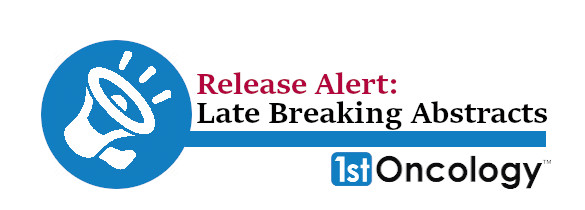
More than 60 Late Breaking Abstracts (LBA’s) were published at this year’s European Society of Medical Oncology (ESMO) (Free ESMO Whitepaper) Congress (E.S.M.O 2018). Below you will find the 16 published at the sessions on Monday 22nd October, the fourth and final day of the conference.
For full analysis identifying new technologies, drugs, targets, start-ups etc. we recommend Commercial Interest at E.S.M.O Annual Meeting 2018: Analytical Tool.
- LBA8_PR – KEYNOTE-048: Phase 3 study of first-line pembrolizumab (P) for recurrent/metastatic head and neck squamous cell carcinoma (R/M HNSCC)
- LBA9_PR – Cetuximab versus cisplatin in patients with HPV-positive, low risk oropharyngeal cancer, receiving radical radiotherapy
- LBA10 – Primary results of ALESIA: A randomised, phase III, open-label study of alectinib vs crizotinib in Asian patients with treatment-naïve ALK+ advanced NSCLC
- LBA18_PR – Durable Clinical Benefit With Nivolumab (NIVO) Plus Low-Dose Ipilimumab (IPI) as First-Line Therapy in Microsatellite Instability-High/Mismatch Repair Deficient (MSI-H/dMMR) Metastatic Colorectal Cancer (mCRC)
- LBA19 – Fluoropyrimidine (FP) + bevacizumab (BEV) + atezolizumab vs FP/BEV in BRAFwt metastatic colorectal cancer (mCRC): Findings from Cohort 2 of MODUL – a multicentre, randomized trial of biomarker-driven maintenance treatment following first-line induction therapy
- LBA20 – TRIBE2: a phase III, randomized strategy study by GONO in the 1st- and 2nd-line treatment of unresectable metastatic colorectal cancer (mCRC) patients (pts).
- LBA21 – InterAACT: A multicentre open label randomised phase II advanced anal cancer trial of cisplatin (CDDP) plus 5-fluorouracil (5-FU) vs carboplatin (C) plus weekly paclitaxel (P) in patients (pts) with inoperable locally recurrent (ILR) or metastatic treatment naïve disease – An International Rare Cancers Initiative (IRCI) trial.
- LBA37_PR – Neoadjuvant ipilimumab plus nivolumab in early stage colon cancer
- LBA42 – OpACIN-neo – A Multicenter Phase 2 Study to identify the Optimal neo-Adjuvant Combination scheme of Ipilimumab (IPI) and Nivolumab (NIVO).
- LBA43 – Updated relapse-free survival (RFS) and biomarker analysis in the COMBI-AD trial of adjuvant dabrafenib + trametinib (D + T) in patients (pts) with resected BRAF V600–mutant stage III melanoma
- LBA44 – Overall survival at 4 years of follow-up in a phase 3 trial of nivolumab plus ipilimumab combination therapy in advanced melanoma (CheckMate 067)
- LBA52 – Results of the GEOMETRY mono-1 phase II study for evaluation of the MET inhibitor capmatinib (INC280) in patients (pts) with METΔex14 mutated advanced non-small cell lung cancer (NSCLC)
- LBA53 – IMpower130: Progression-free survival (PFS) and safety analysis from a randomised phase 3 study of carboplatin + nab-paclitaxel (CnP) with or without atezolizumab (atezo) as first-line (1L) therapy in advanced non-squamous NSCLC
- LBA54 – IMpower132: efficacy of atezolizumab (atezo) + carboplatin (carbo)/cisplatin (cis) + pemetrexed (pem) as 1L treatment in key subgroups with stage IV non-squamous non-small cell lung cancer (NSCLC)
- LBA55 – Primary efficacy results from B-F1RST, a prospective Phase II trial evaluating blood-based tumour mutational burden (bTMB) as a predictive biomarker for atezolizumab (atezo) in 1L non-small cell lung cancer (NSCLC)
- LBA56 – Maintenance chemotherapy versus follow-up after carboplatin and weekly paclitaxel doublet chemotherapy in elderly patients with advanced non-small cell lung cancer (NSCLC): IFCT-1201 MODEL randomised phase 3 trial
Schedule your 30 min Free 1stOncology Demo!
Discover why more than 1,500 members use 1stOncology™ to excel in:
Early/Late Stage Pipeline Development - Target Scouting - Clinical Biomarkers - Indication Selection & Expansion - BD&L Contacts - Conference Reports - Combinatorial Drug Settings - Companion Diagnostics - Drug Repositioning - First-in-class Analysis - Competitive Analysis - Deals & Licensing
Schedule Your 30 min Free Demo!